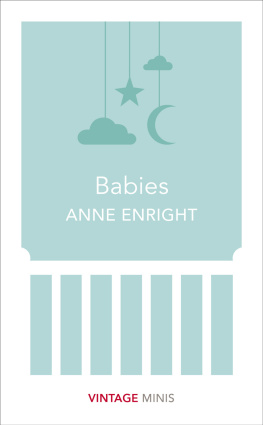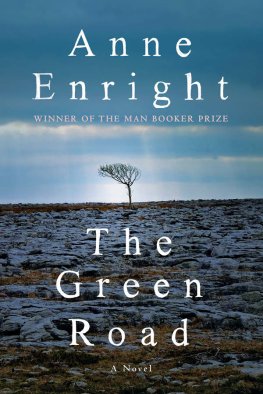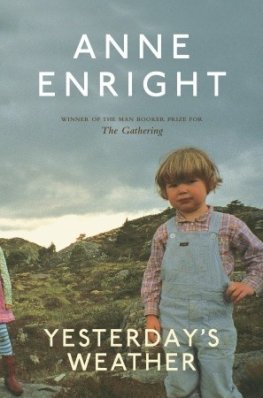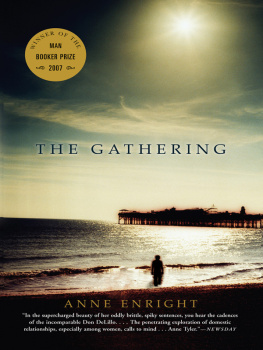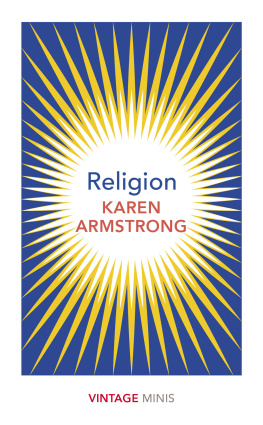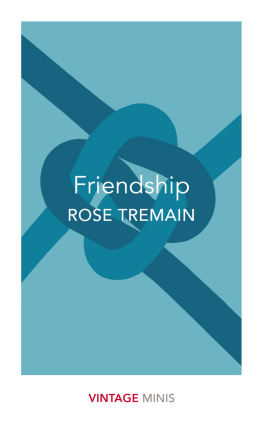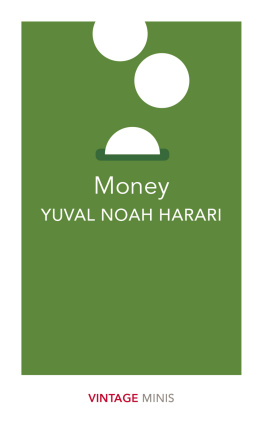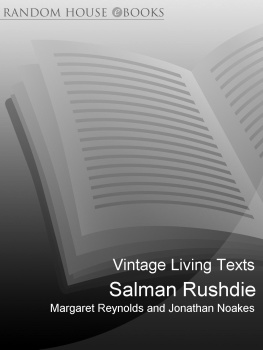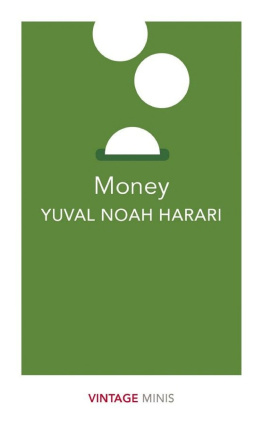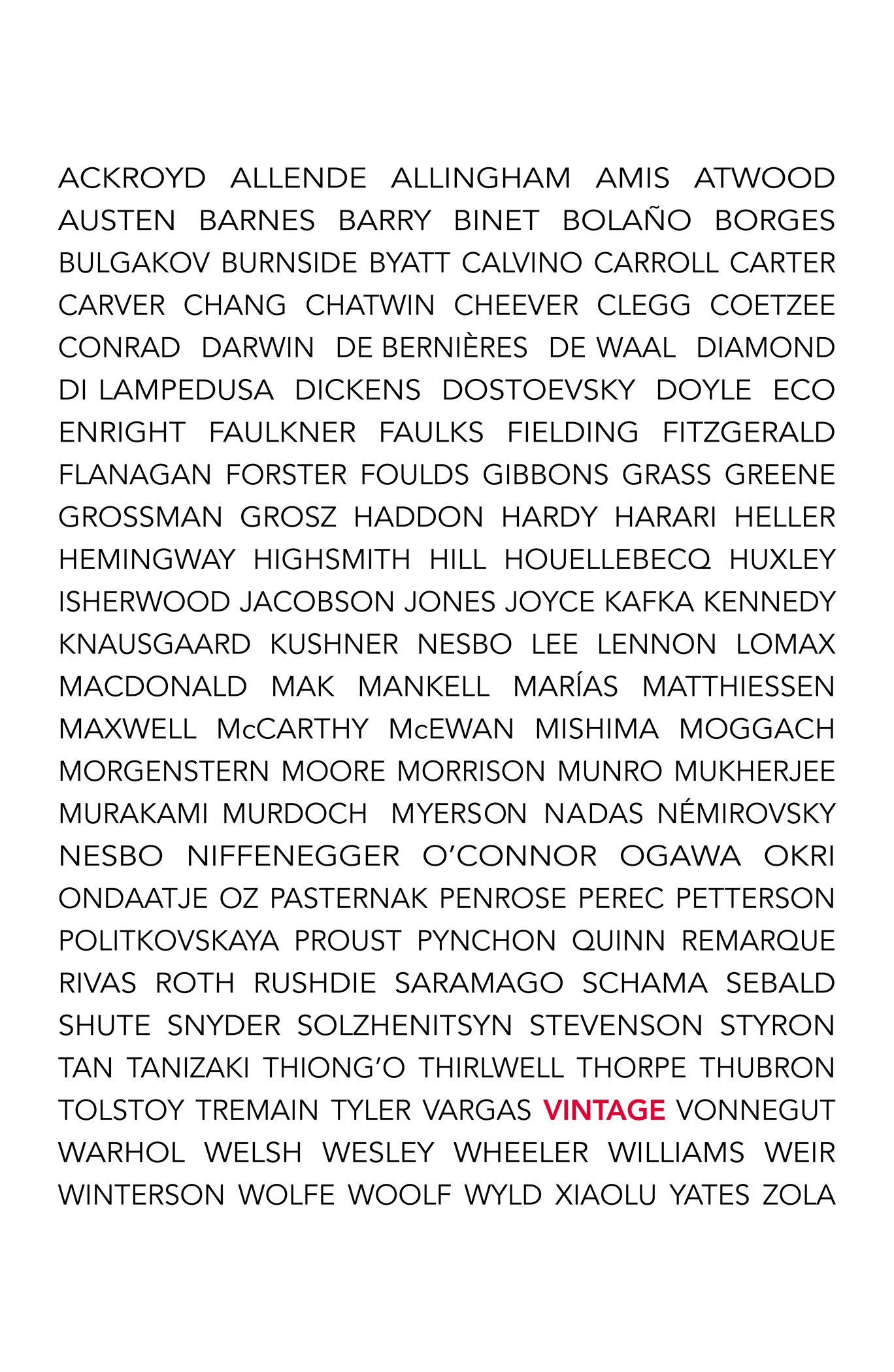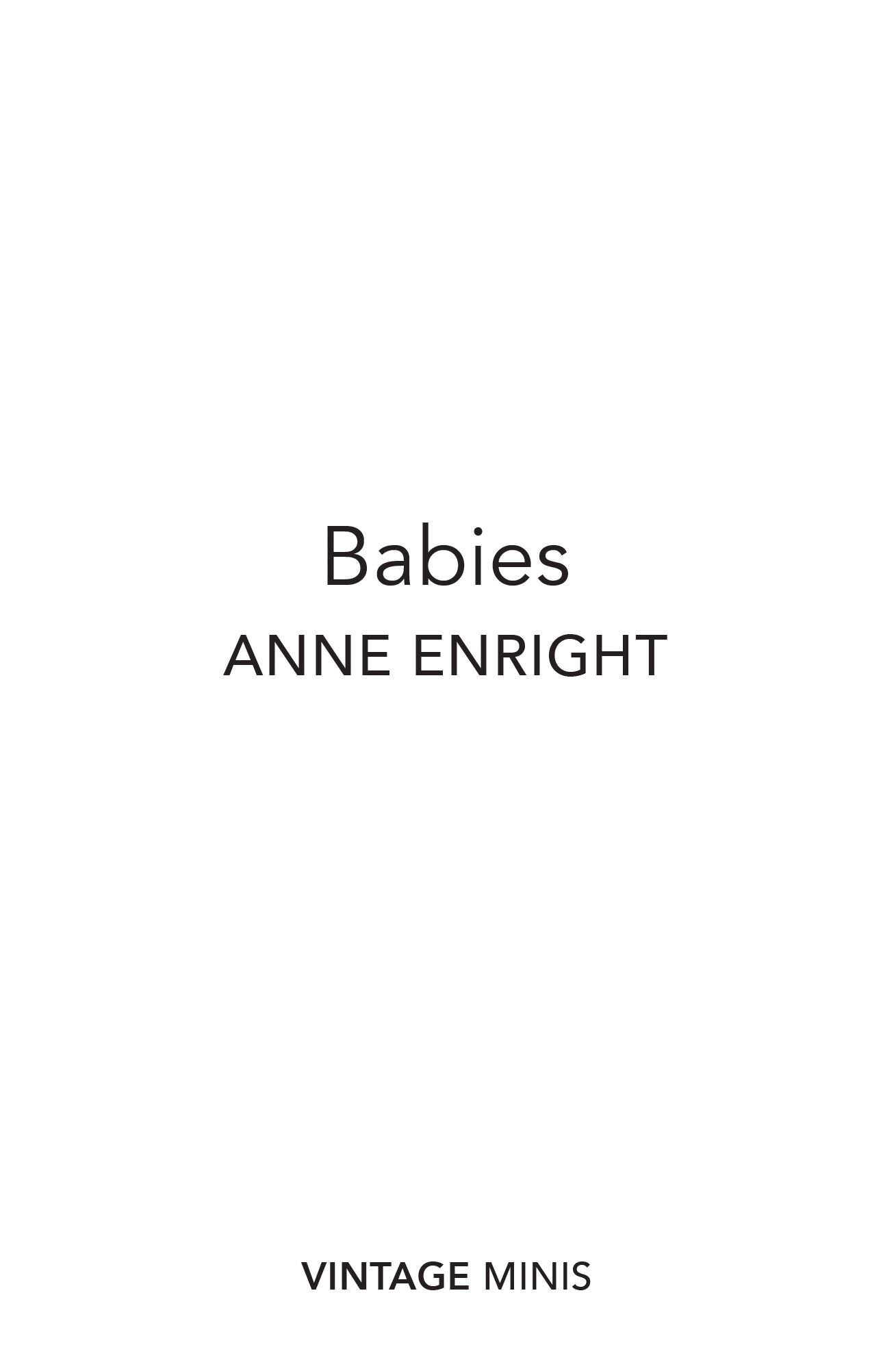@vintagebooks
penguin.co.uk/vintage
This ebook is copyright material and must not be copied, reproduced, transferred, distributed, leased, licensed or publicly performed or used in any way except as specifically permitted in writing by the publishers, as allowed under the terms and conditions under which it was purchased or as strictly permitted by applicable copyright law. Any unauthorized distribution or use of this text may be a direct infringement of the authors and publishers rights and those responsible may be liable in law accordingly.
Epub ISBN: 9781473548435
Version 1.0
1 3 5 7 9 10 8 6 4 2
VINTAGE
20 Vauxhall Bridge Road,
London SW1V 2SA
Vintage is part of the Penguin Random House group of companies whose addresses can be found at global.penguinrandomhouse.com.
Extracts from Making Babies copyright Anne Enright 2004
Author photograph Hugh Chaloner
Anne Enright has asserted her right to be identified as the author of this Work in accordance with the Copyright, Designs and Patents Act 1988
First published in Great Britain by Jonathan Cape in 2004
This short edition published by Vintage in 2017
penguin.co.uk/vintage
A CIP catalogue record for this book is available from the British Library
Apologies All Round
SPEECH IS A selfish act, and mothers should probably remain silent. When one of these essays, about pregnancy, appeared in the Guardian magazine there was a ferocious response on the letters page. Who does she think she is? and Why should we be obliged to read about her insides? and Shouldnt she be writing about the sorrow of miscarriage instead?
So Id like to say sorry to everyone in advance. Sorry. Sorry. Sorry. Sorry.
Id like to apologise to all those people who find the whole idea of talking about things as opposed to just getting on with them mildly indecent, or provoking I do know what they mean. Also to those who like to read about the dreadful things that happen to other people, when nothing particularly dreadful has happened to me, or my children, so far, touch wood, Deo gratias. Also to those readers who would prefer me not to think so much (because mothers just shouldnt), and to those thinkers who will realise that in the last few years I have not had time to research, or check a reference the only books I have finished, since I had children, being the ones I wrote myself (not quite true, but its a nice thing to say). And, of course, people who dont have children are just as good and fine and real as those who do, I would hate to imply otherwise. Also, sorry about my insides: I was reared with the idea that, for a woman, anatomy is destiny, so I have always paid close attention to what the body is and what it actually does. Call it a hobby.
M ARRIED W OMAN H AS C HILDREN IN THE S UBURBS its not exactly a call to arms, and I do genuinely apologise for being so ordinary, in the worst sense. Here I am, all fortunate, living a 1950s ideal of baby powder and burps, except that, in the twenty-first century we know that talc is linked, bizarrely, to ovarian cancer, so there is no baby powder in this house, and we also know that the hand that rocks the cradle also pays for the cradle, or a fair amount of it, and that, for many people, babies are a luxury that they cannot yet afford. But even for the twenty-first century I am doing well: I have flexible working hours, no commuting, I have a partner who took six weeks off for the birth of his first baby and three months for the second (unpaid, unpaid, unpaid). He also does the breakfasts. And the baths. So you might well say, Oh, its all right for her, as I do when I read women writing about the problems they have with their nannies or other domestic staff. More usually, though, when I read women writing about having children, it is not their circumstances that annoy me so much as their tone. I think, What a wretch, would someone please call the social services. It is the way they are both smug and astonished. It is the way we think we have done something amazing, when we have done no more than most other people on the planet except we, in our over-educated way, have to brag about it.
Most of these pieces were started after my first child, a daughter, was born. I played around with them in the two years before I became pregnant again, and they were finished soon after the birth of my son, so though the baby is a she, both children are in there, somewhere. The reason I kept writing about my babies, even when they were asleep in the room, was that I could not think about anything else. This might account for any wildness of tone. The pieces were typed fast. They were written to the sound of a babys sleeping breath. Some were assembled, later, from notes, but I have tried to keep the flavour of the original scraps.
Anyway, these are the material facts (for which I also apologise). I met my husband, Martin, a long time ago, we married I cant remember when, and after eighteen years of this and that we knuckled down to having children. It was not an impulse decision.
After our first child was born I worked while she slept, for the first year, and also in the evenings when her father came home. When she was one, she went to a nursery for (count them) six and a half hours per day, three of which were spent having a nap. When she was two and a half, she got a baby brother, and I worked while he slept. And so on. I would really like a rest, now.
Finally, and quietly, I have to apologise to my family and hope that they will forgive me for loving them in this formal, public, plundering way. Starting with my own mother whose voice comes through my own, from time to time and working down the generations. Like all women who write about their children, I have a wonderful partner except in my case it is true. I also have to apologise to my children for writing about their baby selves; either too much, or not enough, or whatever changing way this book takes them, over the years.
My only excuse is that I think it is important. I wanted to say what it was like.
The Glass Wall
I SPENT MOST of my thirties facing a glass wall. On the other side of this wall were women with babies mothers, you might call them. On my side were women who simply were. It didnt seem possible that I would ever move through the glass I couldnt even imagine what it was like in there. All I could see were scattered reflections of myself; while on the other side real women moved with great slowness, like distantly sighted whales.

